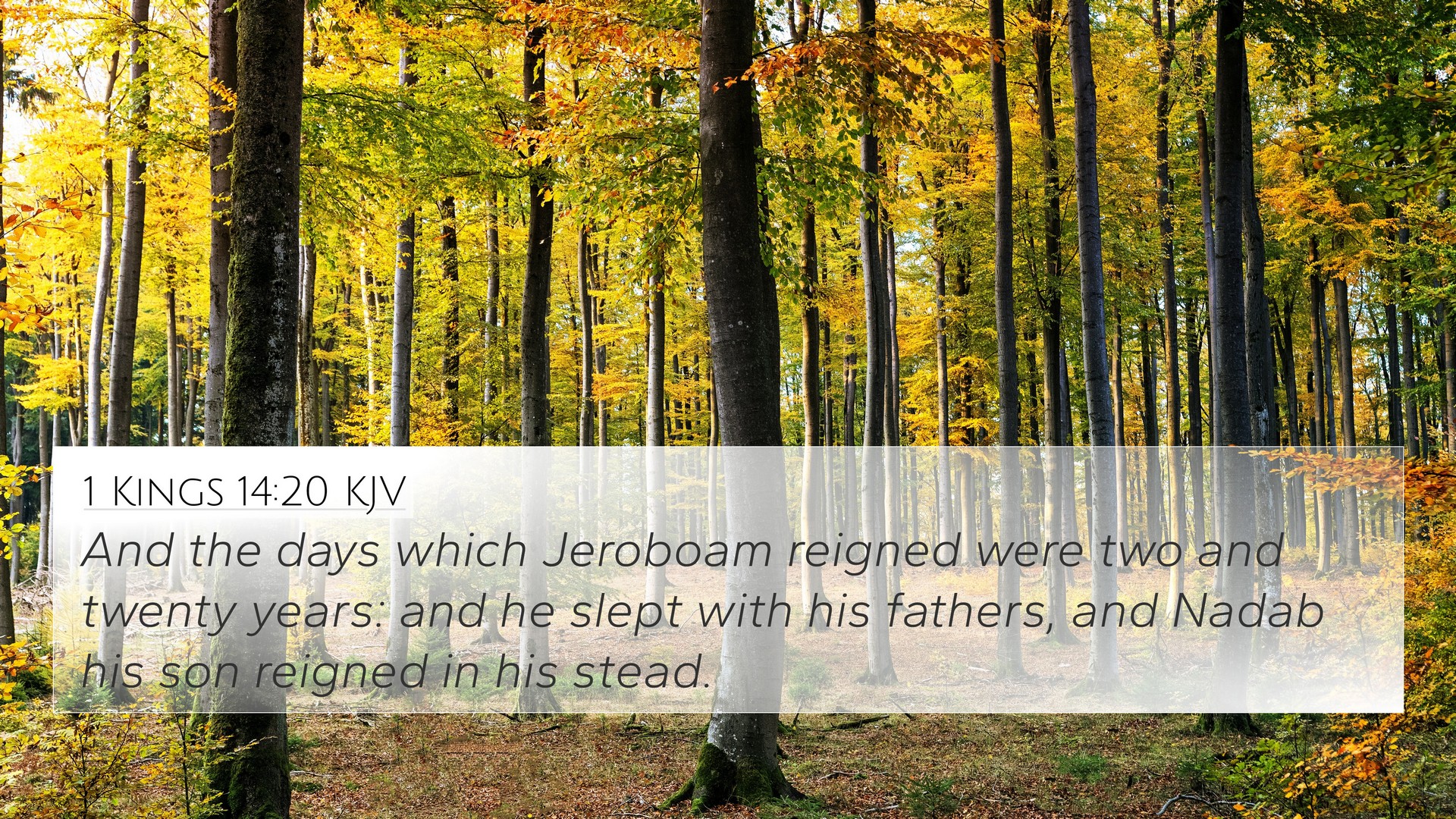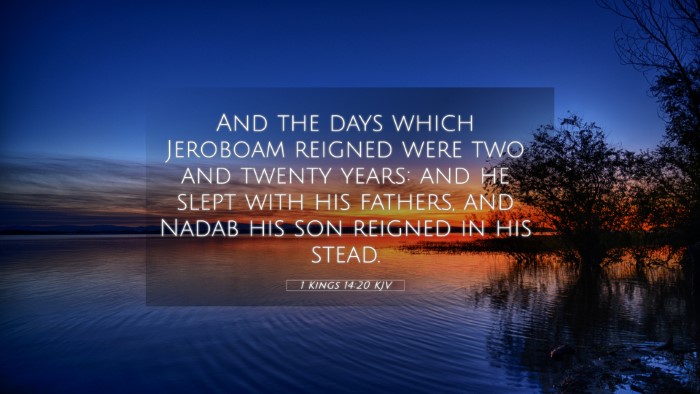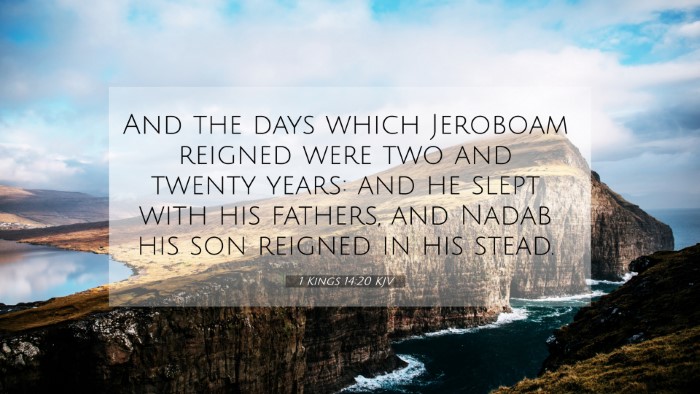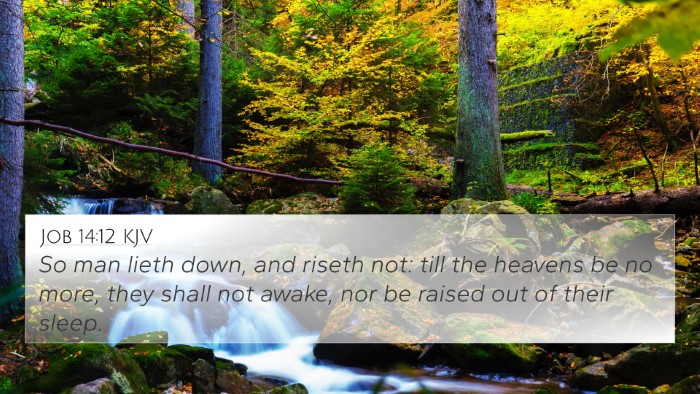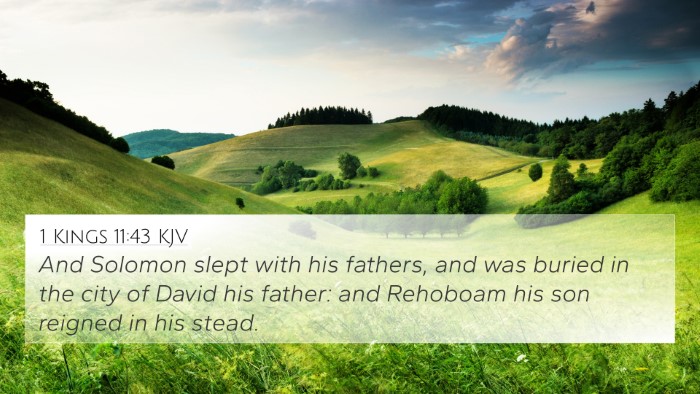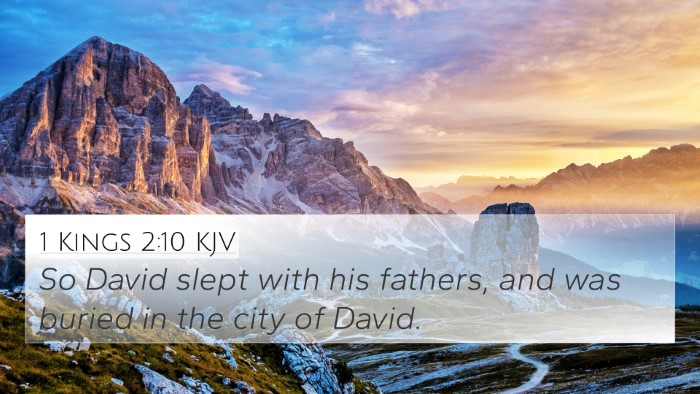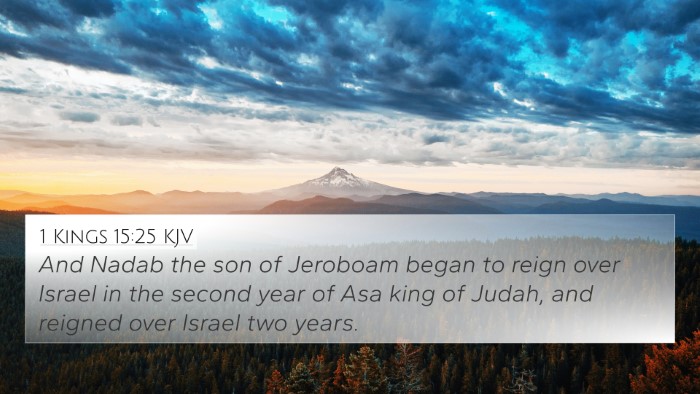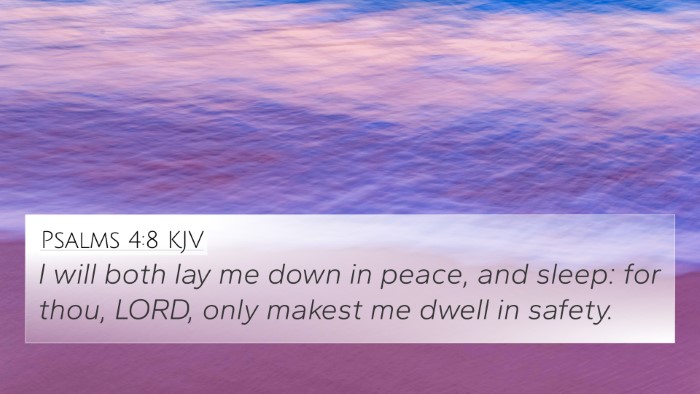Understanding 1 Kings 14:20
Bible Verse: 1 Kings 14:20
This verse narrates the conclusion of a significant chapter in the kingdom of Israel, particularly regarding the reign of King Jeroboam. The verse reads, "And the rest of the acts of Jeroboam, how he warred, and how he reigned, behold, they are written in the book of the chronicles of the kings of Israel." This verse serves as a transition, pointing the reader toward further historical documentation while summarizing Jeroboam's kingship.
Commentary Insights
-
Matthew Henry:
Henry discusses the idea that the records of Jeroboam's actions serve as a crucial historical reference, providing a comprehensive view of his reign. This mention indicates a lack of documentation on personal introspections or spiritual insights, reflecting the secular nature of many such accounts in the Old Testament.
-
Albert Barnes:
Barnes emphasizes the importance of the "book of the chronicles" as an essential tool for understanding Israel's history. It suggests that there is much more to learn from this book, which contains details of political and military maneuvers as well as the overarching theme of disobedience to God that characterized Jeroboam's reign.
-
Adam Clarke:
Clarke points out that these chronicles also highlight the continuous struggle between the worship of Yahweh and idol worship under Jeroboam. He notes the significance of understanding Jeroboam's choices in light of how they influenced future kings and the spiritual state of Israel.
Thematic Analysis
The account in 1 Kings 14:20 invites readers to examine the themes of leadership, accountability, and spiritual fidelity. Each commentary underlines that the historic chronicles serve not just to inform but to warn future generations about the consequences of turning away from God.
Cross-References
This verse can be connected to several others in Scripture that provide a broader understanding of Jeroboam's significance and the narrative of the kings of Israel:
- 1 Kings 12:26-28: Jeroboam's establishment of idolatrous worship.
- 2 Kings 17:21-23: The consequences of Israel's disobedience and exile.
- 1 Kings 15:30: The sins of Jeroboam as a continual theme in the history of Israel's kings.
- 1 Kings 16:2: God's judgment upon the house of Jeroboam due to his iniquities.
- 2 Chronicles 13:8-12: A reference to the ongoing challenge between Jeroboam's rule and the Davidic line.
- 1 Chronicles 9:1: Highlights the importance of genealogical records concerning the kings.
- Hosea 1:4-5: The prophetic declaration about the house of Jeroboam and judgment.
- Amos 7:9: God's declaration against the house of Jeroboam, reinforcing themes of divine judgment.
- Matthew 1:12: Reference to the lineage, showing how Old Testament themes prophesied into the New Testament.
- Revelation 3:7: God’s sovereignty and ultimate judgment akin to the messages seen in Old Testament accounts.
Connections Between Biblical Texts
1 Kings 14:20 serves as a vital link in understanding the broader narrative of Israel's history, challenging believers to explore the connections between the Old and New Testaments. Key themes of fidelity, leadership, and divine judgment resonate throughout the Scriptures. This inter-Biblical dialogue not only strengthens faith but also deepens the understanding of God's overarching plan for humanity.
Tools for Bible Cross-Referencing
Engaging with the Bible's intricate connections offers profound insights. Here are some tools and methods for effective cross-referencing:
- Bible Concordance: Utilize concordances to find related verses quickly.
- Bible Cross-Reference Guide: Guides that outline direct connections between verses can enhance personal study.
- Cross-Reference Bible Study: Engaging with multiple translations may reveal different interpretations of connected verses.
- Comprehensive Bible Cross-Reference Materials: Texts that compile various cross-references provide readers with rich insights.
- Bible Chain References: Techniques that help trace thematic narratives across Scripture.
- Cross-Referencing Bible Study Methods: Exploring themes, historical contexts, and prophetic insights through comparative analysis.
- Bible Reference Resources: Digital tools or books that facilitate deeper study and thematic exploration.
- Identifying connections between Old and New Testament: Recognizing recurring themes and their theological implications.
Conclusion
The narrative in 1 Kings 14:20 is more than a historical record; it's a powerful reminder of the importance of faithfulness in leadership and the implications of turning away from God. By examining the connections within Scripture, believers can gain a holistic understanding of the Bible, applying its lessons to their lives today.
